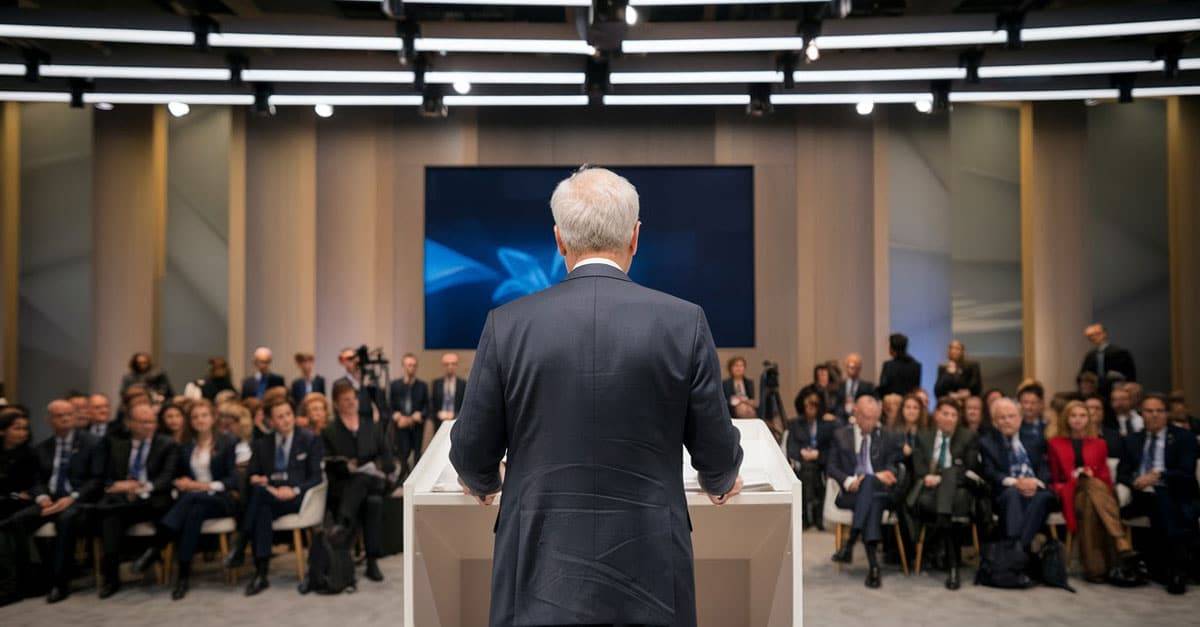The theme of Davos 2024 is “Rebuilding Trust,” with a view towards improving relations within societies and between countries. The participants, which include representatives of governments, civil society organisations, major businesses, and leading media outlets, aim to achieve this lofty goal through fresh thinking, stronger relationships, and now the smart use of technologies like AI.
The Davos 2024 Agenda
This year’s WEF 2024 program at Davos focuses on four interconnected themes the organisation has identified as determining the course of the world’s future:
Achieving Security and Cooperation in a Fractured World. This goal regards simultaneously addressing two challenges : current security issues like unrest in the Middle East as well as broader structural forces that are polarising the world’s societies. Building on their history of providing a platform for global decision makers, the Forum’s organisers seek to identify areas where cooperation is not only helpful but also necessary for everyone’s well-being.
Creating Growth and Jobs for a New Era. This theme involves how governments, companies, and civil societies can work together to create a new economic framework in a time of uncertainty and technological disruption. As many traditional macroeconomic policies appear to be becoming less effective, the participants will focus on taking human-centred approaches and minimising trade-offs as the most likely solutions for encouraging business growth and job creation.
Wealth Aggregation: Simple, Dynamic, and Secure Beyond Compare. Discover the Altoo Wealth Platform!
A Long-Term Strategy for Climate, Nature, and Energy: Here, the goal is to architect systemic ways to make the world carbon-neutral and nature-positive by 2050. Ideally, there should be ways to achieve consensus around making critical resources like energy, food, and water safely and affordably accessible to all.
Artificial Intelligence as a Driving Force for the Economy and Society. This year’s focus on AI is testament to its widely recognised impact on global economies and societies. Talks will address how AI can be used for the greater good, ways to strike a balance between the benefits and risks of the technology for society, and the interplay of AI with other potentially disruptive technologies like 5G/6G telecommunications, quantum computing, and genetic engineering tools.
AI’s Prominence at Davos: A Reflection of Its Growing Impact
The public’s awareness of AI has grown significantly during 2023. The technology’s impact on jobs, skills, and governments has become a leading conversation topic around the world. In many jurisdictions, legislative efforts like the EU’s draft deal on AI regulations are underway to address this impact.
This awareness has led to significant interest in the technology at Davos in 2023 – and the creation of AI House Davos as well the Forum’s AI Governance Alliance and Centre for the Fourth Industrial Revolution network – but this year it has been made an official theme at Davos for the first time.
Davos 2024 will feature a series of key sessions focused on AI, reflecting its multifaceted impact across various sectors:
- Generative AI. This session will explore the implications of the rapid emergence of generative AI in 2023, addressing the management of risks associated with this transformative technology.
- Finnovation. A dialogue on how AI and other emerging technologies will reshape financial services, balancing risks and benefits.
- The Expanding Universe of Generative Models. An exploration of the latest research in generative AI and the future opportunities it presents.
- AI: The Great Equaliser? This session aims to bridge the gap between AI’s potential and its practical application, ensuring equal access to technology.
- Thinking through Augmentation. A discussion on AI’s role in the workplace and its implications for jobs and productivity.
- 360° on AI Regulations. A session featuring Brad Smith, President of Microsoft, focusing on the future of AI governance.
- Ethics in the Age of AI. A debate on the ethical considerations and human implications of AI advancements.
- Education Meets AI. An examination of how AI is transforming education and learning processes.
AI and a New Paradigm for Jobs
By formally including AI on the agenda of this year’s edition of its premiere annual meeting, the World Economic Forum is following up on its own research findings, particularly with respect to the global job market.
According to the WEF’s Future of Jobs Report 2023, global business leaders think 23% of jobs will change in the next five years, with generative AI as a key driving force. This is mostly because of improvements in creative AI technologies. The report stresses that the large language models (LLMs) behind the AI will replace some jobs and make others easier.
Also, a 2023 white paper from the World Economic Forum and Accenture called “The Jobs of Tomorrow: Large Language Models and Jobs” came to a high-impact conclusion: up to 40% of working schedules can be changed for roles in highly skilled fields to routine administration. Jobs that depend on face-to-face conversations, on the other hand, should be less affected.
These research findings suggest that many members of the world’s societies will be earning their livings in significantly different ways over coming years. At Davos this year, business leaders will be encouraged to take proactive and responsible steps to handle the coming shift with respect to job change, job relocation risks, job quality, and upskilling, for example.
Judging from WEF’s Davos 2024 agenda, it is clear that AI has become top of mind for global business and political leaders. The gathering’s focus on AI not only shows how transformative the technology can be but also how important it is to take a holistic perspective of the concerns surrounding it with regards to society, fair access, regulations, privacy, jobs, and ethics.

















